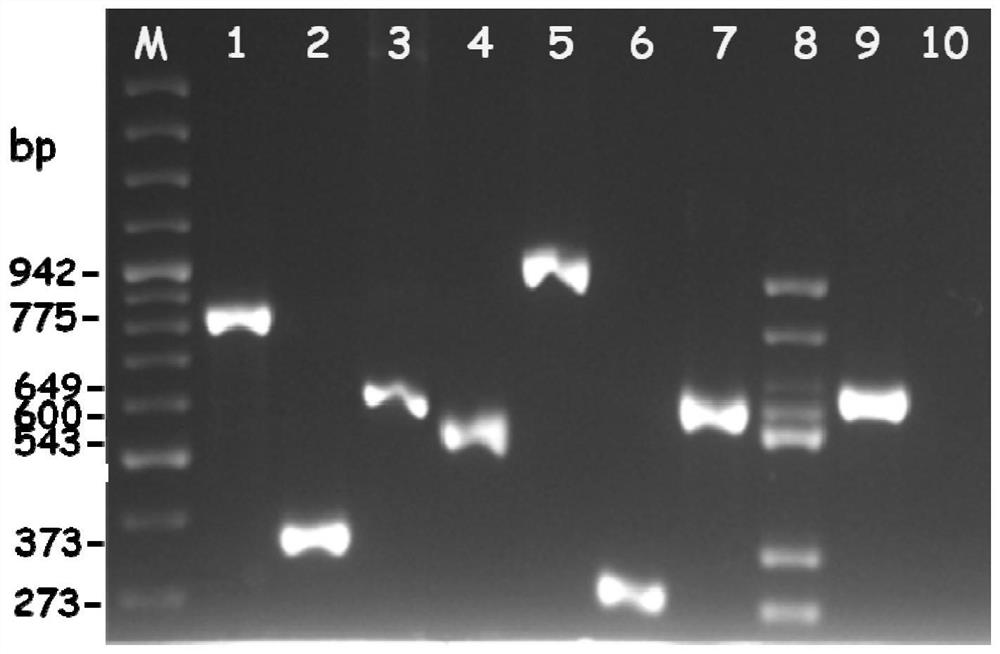A simultaneous detection kit for six types of mycotoxin-producing bacteria
A mycotoxin and synchronous detection technology, applied in the field of biological detection, can solve the problems of time-consuming and complicated professional requirements, and achieve the effects of avoiding false negatives and false positives, ensuring sensitivity, and reducing harm
- Summary
- Abstract
- Description
- Claims
- Application Information
AI Technical Summary
Problems solved by technology
Method used
Image
Examples
Embodiment 1
[0027] 1. Extraction of fungal genome
[0028] Positive bacteria that produce aflatoxins, ochratoxins, patulin, trichothecenes, fumonisins and zearalenone (A. CGMCC3.6890, Fusarium yellow ATCC 204257 and Fusarium moniliforme ATCC 204499) were used as positive controls; strains that did not produce the above six toxins (Cordyceps militaris XMZJ-F-001) were used as negative controls.
[0029] Inoculate the working bacteria (spores or hyphae) of the above-mentioned strains on a PDA plate with cellophane on the surface, culture at 25°C for 3-4 days, and harvest the mycelium when the mycelium is covered with the culture dish and no spores are produced, refer to the following method Extraction of DNA: Weigh 0.2 g of mycelium, place it in a pre-cooled mortar, and grind it to powder with liquid nitrogen. Then add 4mL DNA extraction solution [0.2M Tris·HCl (pH 7.5), 0.5M NaCl, 10mM EDTA, 1% SDS (w / v)], continue grinding, transfer to a centrifuge tube, and place in ice bath for 3-5min....
PUM
 Login to View More
Login to View More Abstract
Description
Claims
Application Information
 Login to View More
Login to View More - R&D
- Intellectual Property
- Life Sciences
- Materials
- Tech Scout
- Unparalleled Data Quality
- Higher Quality Content
- 60% Fewer Hallucinations
Browse by: Latest US Patents, China's latest patents, Technical Efficacy Thesaurus, Application Domain, Technology Topic, Popular Technical Reports.
© 2025 PatSnap. All rights reserved.Legal|Privacy policy|Modern Slavery Act Transparency Statement|Sitemap|About US| Contact US: help@patsnap.com

